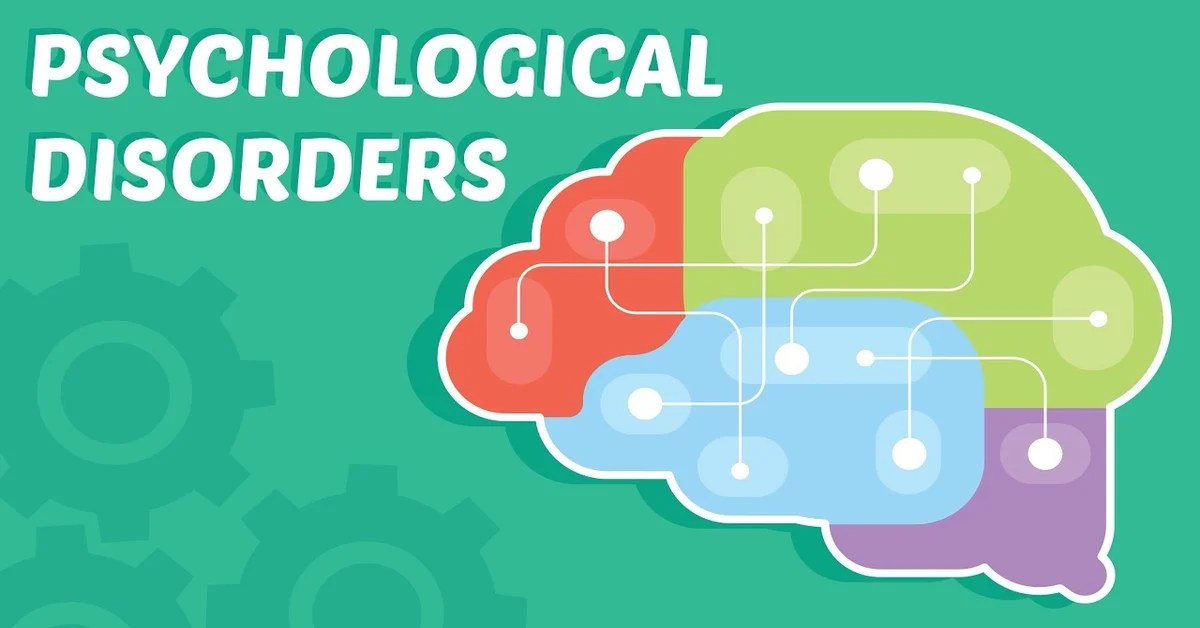Psychological problems mostly link to several other conditions, such as insomnia, depression, stress, and anxiety. They might range in intensity and impact various persons. According to the National Alliance On Mental Illness, one in every five individuals in the United States suffers from a mental health disorder each year.
You are not alone if you suspect you have a psychiatric problem. Many people that are suffering from psychiatric disorders or any kind of health condition may recover especially if they start therapy early and take an active role in their rehabilitation. Continue reading to learn more about psychological disorders and mental health conditions.
Cognitive Disorders
The majority of diagnoses of neurological abnormalities are during early childhood, youth, or pregnancy. This form of developmental condition, also popular as intellectual impairment, occurs before the age of eighteen. Also, its identification is through difficulties in both intellectual functioning and adaptive behavior.
Challenges in intellectual functioning are frequently found via IQ testing. An IQ score of less than seventy frequently suggests the presence of restriction. However, people tend to find autism at work as well. With that in mind, self-care, human engagement, and housekeeping skills are only a few examples of the kinds of practical, everyday abilities that go into adaptive behaviors.
Anxiety Disorders
In some circumstances, it is normal and acceptable to have the occasional mention of anxiousness. However, for people suffering from Anxiety Disorders, those sensations of concern and terror are not passing. An individual suffering from Anxiety Disorders suffers constant anxiety that might worsen over time. The symptoms can and frequently do interfere with daily activities such as job performance academics and personal relationships
Post Traumatic Stress Disorder
In areas affected by violence, Post Traumatic Stress Disorder, and other mental problems are very common. Post Traumatic Stress Disorder can occur as a result of seeing an extraordinarily scary or traumatic incident or set of events. It is distinguished by a few characters. This includes reliving the traumatic incident or events in the present, such as painful recollections, flashbacks, or nightmares.
Avoiding recalling or thinking of past events, or avoiding behaviors, surroundings, or persons that bring back the events. Last, continuous feelings of the increased present danger. These symptoms last at least a few weeks and significantly affect work. There are effective psychological treatments available as well through attending disability speaker seminars.
Obsessive Compulsive Disorder
Obsessive Compulsive Disorder is a long-term condition in which a person has repetitive and obsessive thoughts or activities that they want to repeat. These beliefs and habits can harm daily life. This includes relationships, work, and education.
Obsessive Compulsive Disorder symptoms may appear and disappear over time and they might get better or get worse. A person suffering from Obsessive Compulsive Disorder may attempt to avoid the triggers that set off their obsessive thoughts and compulsive behaviors.
Health Systems And Social Support
Health Care System is substantially poor and has not yet fully responded to the needs of people with mental illnesses. The gap between the demand for therapy and its availability is vast all over the world and treatment is frequently of low quality when it is done. Only twenty-nine percent of people with psychosis and n third of those with depression, in this case, receive professional mental care.
Furthermore, people with mental illnesses also require social support. This includes assistance in establishing and sustaining, self, family, and social ties. Also, people with mental illness diagnoses require assistance with educational programs, work housing, and involvement in other important activities.
Sleep Disorders
Sleep Disorder presence is proven by changes in quality, timing, and quantity of sleep. This causes distress throughout the day and impairs performance. Sleep is essential for both physical and mental health.
Wrapping It Up
The identification of a psychological condition is through disturbing ideas, moods, and behaviors. Although difficult, psychological and mental health experts must agree on what types of inner sensations and actions indicate the presence of a psychological condition. Inner sensations and actions that are unusual or break community standards may indicate the presence of a disease.
Nevertheless, each of these criteria is sufficient on its own. The concept of harmful failure refers to the belief that psychiatric diseases are a way through internal mechanisms’ failure to execute their inherent purpose. Many aspects of injurious functioning conception have been introduced into the American Psychological Association’s official classification of psychological disorders. Significant abnormalities in thinking, keeping this definition in mind, indicate the presence of a psychiatric condition.
These disruptions must represent some types of malfunctions, which can be medical, mental, or neurological. This can end up creating harm in one’s life and does not reflect cultural anticipated reactions to particular life events. Hopefully, the above information will be helpful enough for anyone creating research on psychological disorders and health conditions.



